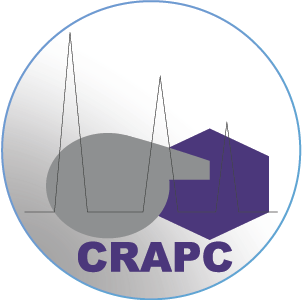LAMIA HAMDAN RAMDANI1,2⇑, OUALID TALHI1,3, CAROLINE DECOMBAT2, MARION VERMERIE2, ALEXANDRE BERRY2, ARTUR SILVA3, KHALDOUN BACHARI1, MARIE-PAULE VASSON2,4, LAETITIA DELORT2,* and FLORENCE CALDEFIE-CHÉZET2,5,* Author Affiliations
1-Scientific and Technical Research Center in Physico-Chemical Analysis (CRAPC), Tipaza, Algeria
2-Clermont Auvergne University, INRA, UNH, Human Nutrition unit, CRNH Auvergne, Clermont Ferrand, France
3-Organic Chemistry, Natural Products and Agrifood (QOPNA), Department of Chemistry & QOPNA, University of Aveiro, Aveiro, Portugal
4-Anticancer Center Jean-Perrin, Clermont Ferrand, France
5-CLARA, Lyon Auvergne Rhone Alpes canceropole, Lyon, France
Correspondence to: Lamia Hamdan Ramdani, Clermont Auvergne University, INRA, UNH, Human Nutrition Unit, CRNH Auvergne, F-63000 Clermont-Ferrand, France. Tel: +213 799423134, e-mail: lamia_pharm@yahoo.frAbstract
Aim: The present investigation aimed to examine the therapeutic potential of the new coumarin derivative bis(4-hydroxy-2H-chromen-2-one) coumarin (4HC) against breast cancer. Materials and Methods: For this purpose, the effects of 4HC treatment on the proliferation of MCF-7 breast cancer cells and on MCF-10a non-cancerous cells were evaluated using a fluorescent assay. Cell cycle distribution and apoptosis were measured by image cytometry. The expression level of aromatase (CYP19A1) and apoptosis-related genes were determined by real-time PCR. Results: MCF-7 mammary cancer cell proliferation was significantly decreased within 24 h after treatment with 4HC at 50 μM, while no effect was observed on the viability of MCF-10a non-cancerous mammary cells. 4HC also increased the percentage of the cells in the G2/M phase, inducing apoptosis. Real-time PCR revealed that 4HC induced MCF-7 mortality through an up-regulation of Bax and a down-regulation of Bcl-2, resulting in an increase in caspase-3 gene expression. The increased expression of apoptosis-related genes was accompanied by a decrease in CYP19A1 gene expression. Conclusion: 4HC selectively inhibits proliferation of MCF-7cells in vitro. Moreover, 4HC has inhibitory effects on aromatase gene expression and promoting effects on apoptosis, in MCF-7 cells.
Coumarin derivative Bis(4-hydroxy-2H-chromen-2-one) breast cancer cell proliferation cell cycle apoptosis aromatase inhibition MCF-7 breast cancer cells
Received September 10, 2019.
Revision received October 11, 2019.
Accepted October 16, 2019.
Copyright© 2019, International Institute of Anticancer Research (Dr. George J. Delinasios), All rights reserved

